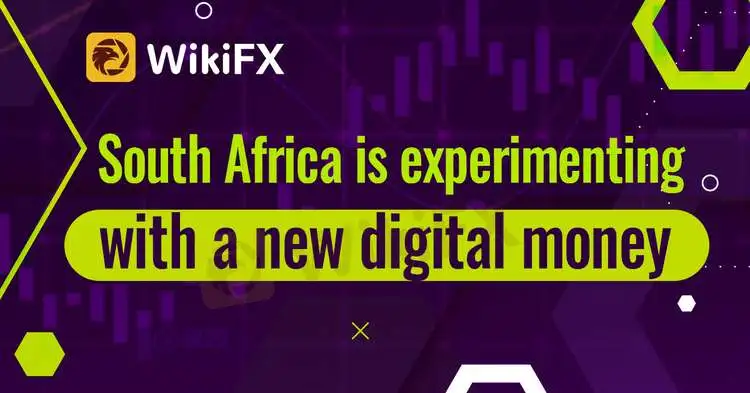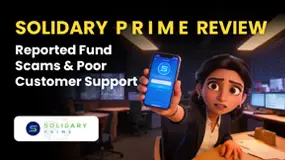South Africa is experimenting with a new digital money
Abstract:The BIS Innovation Hub and the South African Reserve Bank have announced the completion of a prototype system that allows international settlements to be made using central bank digital currencies.

The BIS Innovation Hub and the South African Reserve Bank have announced the completion of a prototype system that allows international settlements to be made using central bank digital currencies.
The prototype system, dubbed 'Project Dunbar,' allows institutions to conduct direct transactions in central bank digital currencies, or CBDCs, while saving time and money.
The South African Reserve Bank said in a statement on Tuesday that this has the potential to reduce dependency on intermediaries and, as a result, the costs and time it takes to complete cross-border transactions (22 March).
The initiative also included the Reserve Bank of Australia, Bank Negara Malaysia, and the Monetary Authority of Singapore.
There is presently no single international platform for cross-border payments and settlements using CBDCs, unlike domestic payments, where banks may pay each other directly on a single national payments network.
The correspondent banking paradigm, in which banks keep foreign currency accounts with one another, is now in use. Numerous correspondent banks may be engaged in completing a single cross-border transfer, with transactions stored on multiple ledgers on multiple systems based on different technologies and communicating in different message formats.
Cross-border transfers are often slower, more opaque, and more costly than domestic payments due to this fragmented network.
A single cross-border payment may be routed via several correspondent banks, each of which holds foreign currencies. Each leg of the transaction requires time and effort to complete, with fees that soon mount up and are passed on to customers, resulting in delayed and expensive cross-border payments.
“Even though multi-CBDC research is still in its early stages,” said Rashad Cassim, deputy governor of the South African Reserve Bank. “Project Dunbar demonstrates the prospects of employing several CBDCs issued on a common platform for international settlement.”
“While many unknowns remain, and a number of areas require more examination, we can only truly contribute to the G20 plan for improving cross-border payments by gaining a global knowledge and going together.” We are honored to be a part of this groundbreaking project.
The South African Reserve Bank had already experimented with a digital currency for local usage as part of its Project Khoka initiative, which aimed to employ blockchain technology to speed up the country's payment operations.

Related broker





Read more

ForexDana Exposure: Do Traders Witness Fund Scams & Deposit Credit Failures?
Did your deposited amount fail to reflect in the ForexDana forex trading account? Failed to receive an adequate response from the broker’s customer support officials? Do you think that it is a clone firm that cheats traders? Were you fascinated by the profit shown on the trading platform, but could not withdraw funds? Have you been lured into trading by a deposit bonus that does not work in real-time? In this ForexDana review article, we have investigated some complaints against the broker.

SOLIDARY P R I M E Review: Reported Fund Scams & Poor Customer Support
Have you witnessed a complete fund scam experience when trading with SOLIDARY PRIME? Did you have a PAMM account that disappeared suddenly on the broker’s trading platform? Is the SOLIDARY PRIME customer support team inept in handling your trading queries? Did the broker deceive you on binary options? These complaints are showing up on broker review platforms. In this SOLIDARY PRIME review article, we have investigated some of the complaints against the broker. Take a look!

Market10 Review: Check Out the Latest Fund Scam Allegations Against the Broker
Have you lost funds using weak signals from Market10, a South Africa-based forex broker? Has the forex broker deliberately deducted profits from your forex trading account balance? Does the broker constantly delay your fund withdrawals? Did Market10 officials continuously call you to start investing with it and remain silent on your withdrawal requests? You are not alone! Many traders have reported these trading experiences on broker review platforms. We have shared some of their experiences in this Market10 review article. Read on to know the same.

Fideuram Direct Review 2026: Is Fideuram Direct a Safe Forex Broker or High-Risk Platform?
Fideuram Direct review is gaining attention among Forex traders evaluating new brokers. However, safety and regulation are the most critical factors when choosing a broker. In this review, we examine Fideuram Direct brokers, its regulatory status, trading offerings, and risks — especially in light of its extremely low WikiFX score of 1.43/10.
WikiFX Broker
Latest News
FINRA Fines Cetera $1.1 Million Over Compliance Lapses
FINRA Fines Cetera $1.1 Million Over Compliance Lapses
Upway (JRJR) Review: A Deep Dive into Safety and Regulation
Coinbase Banks Push Advances Crypto Rules
RM668K Gone Overnight: Factory Supervisor Trapped in Fake Investment Scam
Dollar Softens as Fed Signals Shifts; Warsh Leads Nomination Race
Safe-Haven Supercycle: Gold Hits $4,690 as Silver Squeeze Intensifies
Trans-Atlantic Rupture: Markets Brace for Trade War as Trump Issues Greenland Ultimatum
China Delivers 5% Growth Target, Yet December Data Reveals Deepening Consumption and Property Cracks
Italy’s Consob Blocks Five Unauthorized Investment Websites in New Enforcement Action
Rate Calc
